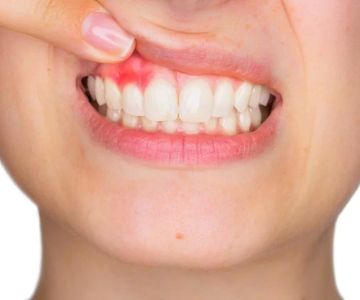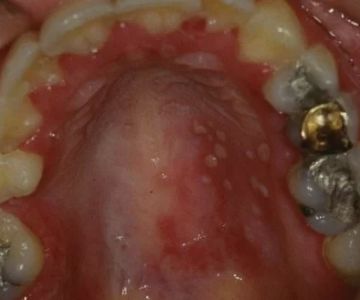
1. What Are Faecal-Oral Diseases?
Faecal-oral diseases are infections caused by the ingestion of fecal matter, either directly or indirectly. These diseases are transmitted when bacteria, viruses, or parasites in fecal matter contaminate food, water, or surfaces that are later consumed or come into contact with the mouth. Although these diseases are more common in regions with poor sanitation, they are still a concern globally, especially in the United States, where outbreaks can occur in communities with insufficient hygiene practices.
The term “faecal-oral” refers to the pathway by which the disease-causing agents are transferred from feces to the mouth. This can occur through contaminated drinking water, food, unclean hands, or surfaces that come into contact with fecal matter. For example, handling food with contaminated hands or drinking water from unsanitary sources can lead to the ingestion of harmful microorganisms that cause various illnesses.
2. Common Faecal-Oral Diseases
There are several diseases that are transmitted via the faecal-oral route. Some of the most common and dangerous ones include:
2.1 Hepatitis A
Hepatitis A is a viral infection that affects the liver. It is primarily transmitted when people consume food or water contaminated with the feces of an infected person. The symptoms of hepatitis A include fatigue, abdominal pain, jaundice, and nausea. Vaccination is the most effective way to prevent the disease, especially in regions where sanitation is inadequate.
2.2 Cholera
Cholera is a severe diarrheal disease caused by the bacterium Vibrio cholerae. It spreads primarily through the consumption of contaminated water or food. Cholera can lead to rapid dehydration, shock, and death if left untreated. It remains a major concern in areas with poor sanitation infrastructure. The key to prevention is proper sanitation, safe drinking water, and hygiene practices such as handwashing.
2.3 Typhoid Fever
Typhoid fever, caused by the bacterium Salmonella Typhi, is another disease that spreads through the faecal-oral route. It is typically contracted by consuming food or water contaminated by the stool of an infected person. Typhoid fever can lead to prolonged fever, weakness, abdominal pain, and in some cases, severe complications like intestinal perforation. Vaccination and proper hygiene are crucial in preventing typhoid.
2.4 Rotavirus
Rotavirus is a common cause of gastroenteritis in children, leading to severe diarrhea, vomiting, and dehydration. It spreads primarily through contaminated food, water, or surfaces. Although rotavirus infections are most common in infants and young children, the introduction of a rotavirus vaccine has significantly reduced the incidence in many countries.
2.5 Giardiasis
Giardiasis is caused by the Giardia parasite and can be contracted by drinking contaminated water or consuming food handled by an infected person. Symptoms include diarrhea, bloating, nausea, and fatigue. It is commonly found in areas with poor water sanitation, but it can also affect people in the U.S. if they consume unfiltered or untreated water.
3. How Faecal-Oral Diseases Spread
Faecal-oral diseases primarily spread through the ingestion of pathogens found in feces. This can happen in several ways:
- Contaminated Water: Drinking water contaminated with fecal matter is one of the most common ways these diseases spread. This can happen when sewage systems are compromised or when people drink from unclean water sources.
- Food Contamination: Foods can become contaminated with fecal matter if handled improperly or grown in unsanitary conditions. Improperly washed fruits and vegetables, or undercooked food, are common culprits.
- Direct Contact: If an infected person does not wash their hands properly after using the restroom, they can transfer harmful bacteria, viruses, or parasites to surfaces, food, or other people.
- Unclean Surfaces: Faecal-oral diseases can also spread by touching contaminated surfaces, such as public restrooms, doorknobs, or kitchen counters, and then touching the mouth.
4. Preventing Faecal-Oral Diseases
Preventing faecal-oral diseases involves maintaining good hygiene practices and ensuring access to clean water and food. Here are some effective measures to prevent these infections:
4.1 Handwashing
One of the simplest and most effective ways to prevent faecal-oral diseases is proper handwashing. Washing hands with soap and water after using the bathroom, before eating, and after handling food can significantly reduce the risk of infection. Teach children to wash their hands thoroughly and make handwashing a part of their daily routine.
4.2 Safe Drinking Water
Ensuring access to safe drinking water is crucial. If you are unsure of the quality of your water, consider using a water filter, boiling water, or using bottled water for drinking and cooking. In many regions, especially in developing countries, water purification systems are essential for preventing waterborne diseases.
4.3 Proper Food Handling
Food should be prepared and stored in sanitary conditions to prevent contamination. Always wash fruits and vegetables thoroughly, especially those that will be eaten raw. Cook meat thoroughly to kill any bacteria or parasites that may be present.
4.4 Vaccination
Vaccines can help prevent certain faecal-oral diseases, such as hepatitis A and rotavirus. It is important to ensure that children receive their vaccinations on time, particularly when traveling to areas with higher risks of these diseases.
5. Real-Life Example: The Importance of Hygiene During an Outbreak
In 2014, an outbreak of the rotavirus in a small community in the Midwest U.S. highlighted the importance of hand hygiene. The outbreak, which affected dozens of children, was traced back to an unclean daycare facility where children were not washing their hands properly after using the bathroom. The outbreak was contained after the local health department implemented stricter hygiene measures, and vaccination efforts were increased in the area. This event underscores the significance of teaching children good hygiene habits to prevent the spread of faecal-oral diseases.
6. Conclusion: Protecting Yourself from Faecal-Oral Diseases
Faecal-oral diseases may seem like a distant concern, but they are a very real threat to public health. By maintaining good hygiene practices, ensuring access to safe water and food, and staying informed about potential risks, you can protect yourself and your family from these preventable diseases. For more information on disease prevention and family health, visit Family Dentistry Online, where you can find expert advice and resources for protecting your loved ones.







 Sullivan & Turner, LLC4.0 (73 review)
Sullivan & Turner, LLC4.0 (73 review) Contemporary Dental Care4.0 (110 review)
Contemporary Dental Care4.0 (110 review) Classic Dental Laboratory0.0 (0 review)
Classic Dental Laboratory0.0 (0 review) Isom Endodontics- Dr. Terry Isom4.0 (322 review)
Isom Endodontics- Dr. Terry Isom4.0 (322 review) Village Pediatric Dentistry4.0 (11 review)
Village Pediatric Dentistry4.0 (11 review) Kaiser & Rosen Dental Associates4.0 (107 review)
Kaiser & Rosen Dental Associates4.0 (107 review) The Importance of Oral Health Education During Pregnancy for a Healthy Pregnancy
The Importance of Oral Health Education During Pregnancy for a Healthy Pregnancy Why Skipping Dental Checkups Can Lead to Bigger Oral Health Problems
Why Skipping Dental Checkups Can Lead to Bigger Oral Health Problems Best Tips for Brushing Your Teeth Properly for Healthy Gums: Essential Techniques for Oral Health
Best Tips for Brushing Your Teeth Properly for Healthy Gums: Essential Techniques for Oral Health Advantages of Porcelain Dental Restorations
Advantages of Porcelain Dental Restorations How Can Diabetes Cause Tooth and Gum Problems? Preventing and Managing Oral Health Issues
How Can Diabetes Cause Tooth and Gum Problems? Preventing and Managing Oral Health Issues Healthy Habits for Promoting Good Oral Health and Hygiene: Tips for a Healthy Smile
Healthy Habits for Promoting Good Oral Health and Hygiene: Tips for a Healthy Smile